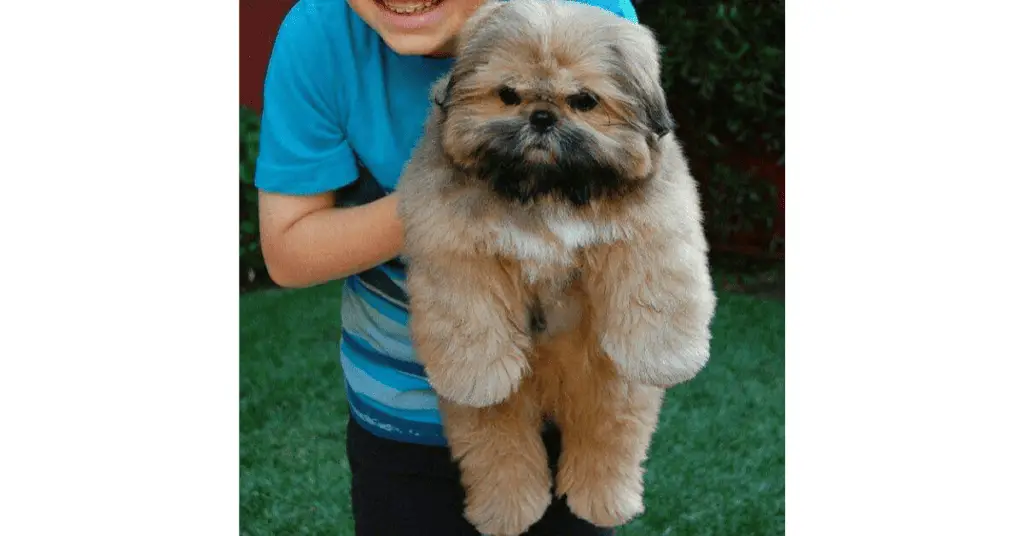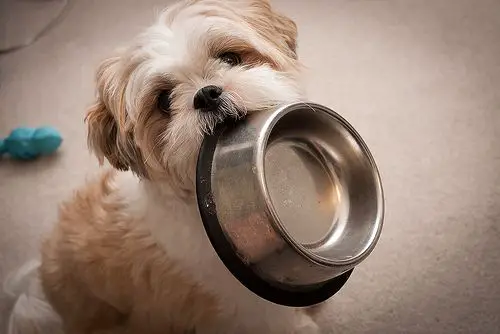Navigating the world of pet nutrition can be like steering a ship through uncharted waters—we’re here to be your compass.
We’ve gathered our top diet strategies to help keep your Shih Tzu’s weight in check. It’s crucial to assess their current diet and understand the importance of portion control.
We’ll show you how to strike the perfect balance with nutrients, which is essential for their overall health. Plus, we can’t forget about exercise; it plays a pivotal role in weight management.
Along the journey, we’ll also teach you how to monitor and adjust their diet to ensure your furry friend stays happy, healthy, and within a healthy weight range.
Let’s dive in and explore these strategies together.

Assessing Your Shih Tzu’s Diet
We must first evaluate our Shih Tzu’s current diet to identify areas that may contribute to weight gain. It’s essential to consider not just the amount of food we’re providing, but also its nutritional content. We’re aware that food allergies can play a significant role in a dog’s health and weight.
If our Shih Tzu is showing signs of allergies, such as itching or gastrointestinal issues, we’ll need to pinpoint the allergens and adjust their diet accordingly. This might mean selecting hypoallergenic foods specifically tailored to avoid common triggers.
Moreover, treat selection is paramount. We often overlook the calories and potential allergens in treats, but they can be substantial contributors to weight gain. We’ll choose treats that are low in calories and free from common allergenic ingredients.
Smart Portion Control Practices
How can we ensure we’re not overfeeding our Shih Tzu when even a small excess can lead to weight issues? The key lies in smart portion control practices.
We must start by understanding the caloric needs of our pet, which vary based on age, activity level, and overall health. It’s crucial to measure each meal accurately, using a standard measuring cup or scale, rather than guessing.
We ought to establish regular feeding times and stick to them to prevent overfeeding and manage hunger expectations.
Treat management is also essential; treats should be counted as part of the daily calorie intake, not as extras. By strategizing treat distribution, we can reward our Shih Tzu without significantly increasing their calorie consumption.

Nutritional Balance for Health
Ensuring our Shih Tzu’s diet isn’t just portion-controlled but also nutritionally balanced is crucial for their overall health and weight management. A diet with optimal ingredient quality provides the necessary vitamins, minerals, and proteins that contribute to their energy levels, immune function, and overall wellbeing. It’s not enough to simply feed our pets; we must focus on the caliber of the ingredients we’re offering.
We mustn’t overlook the importance of hydration, especially for Shih Tzus, who may be prone to kidney issues. Adequate water intake supports metabolic processes and helps maintain a healthy weight. By combining high-quality, balanced nutrition with proper hydration, we’ll set the stage for a healthy and vibrant life for our beloved companions.
The Role of Exercise
Incorporating daily exercise into our Shih Tzu’s routine is essential for maintaining a healthy weight and enhancing their overall well-being. Understanding the playtime importance, we acknowledge that it’s not just about the quantity but also the quality of the activities we provide. Engaging play sessions stimulate their mind and body, promoting better metabolism and muscle tone.
When considering exercise frequency, we’re aiming for a balance. Shih Tzus require regular physical activity, but due to their small size and potential for respiratory issues, moderation is key. We recommend daily walks, coupled with short, interactive playtimes that can vary in intensity based on our dog’s age, health, and individual needs. This strategic approach helps prevent obesity and related health concerns, ensuring a fit and happy life for our furry companions.
Monitoring and Adjusting Diet

We must vigilantly monitor our Shih Tzu’s food intake and make necessary adjustments to maintain optimal weight. This process often involves calorie counting to ensure they’re not consuming more than their daily energy requirements. It’s a practical approach that allows us to scientifically measure and control the amount of energy our pets get from their food, which is crucial for weight management.
In addition to calorie control, we should be aware of potential food allergies that might affect our Shih Tzu’s health and weight. Some ingredients can cause adverse reactions, leading to gastrointestinal upset and poor nutrient absorption. By keeping a close eye on how our dogs respond to different foods and modifying their diet accordingly, we can help them achieve a healthy weight while also addressing any dietary sensitivities.
Conclusion
In conclusion, we’ve seen that managing our Shih Tzu’s weight hinges on a balanced diet and smart portioning.
Regular exercise is crucial, not only for their physical health but for their mental well-being too.
We must remain vigilant, monitoring their condition and adjusting their diet as needed.
By following these strategies, we can ensure our furry friends maintain an ideal weight, supporting a healthy and vibrant life.
Let’s commit to their optimal care together.


